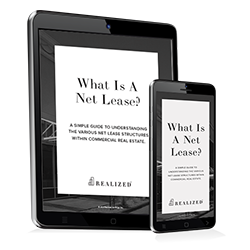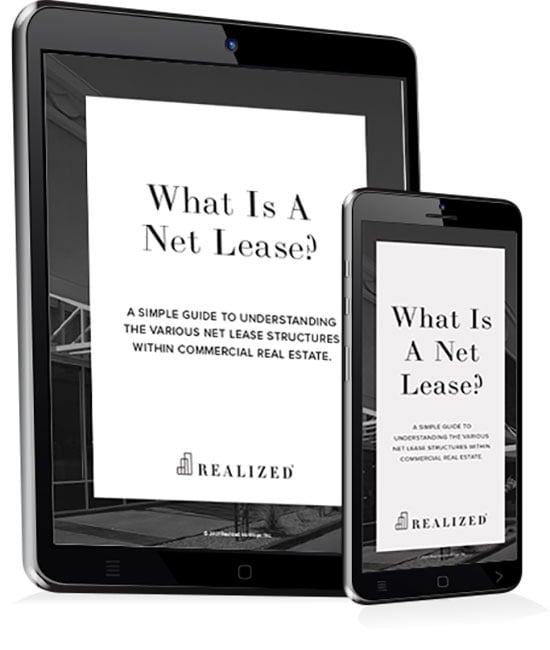 Commercial leases typically fall into three categories: gross leases, modified gross leases, and net leases. Within the net lease category, there are single, double, triple, and absolute subcategories. Which is most advantageous for you depends on the type of business, the circumstances, and whether you are the landlord or the tenant. Knowledge is power, and understanding the differences between the leases can help you decide which is most suitable.
Commercial leases typically fall into three categories: gross leases, modified gross leases, and net leases. Within the net lease category, there are single, double, triple, and absolute subcategories. Which is most advantageous for you depends on the type of business, the circumstances, and whether you are the landlord or the tenant. Knowledge is power, and understanding the differences between the leases can help you decide which is most suitable.
With a gross lease, the landlord charges rent to the tenants and pays all the costs of maintaining the property. Those expenses include property taxes, insurance, maintenance, and repairs. The landlord adds to the base rent to cover expected costs, but the tenant isn't liable for any payments if expenses are higher than expected. Owners often choose a gross lease for single and multi-tenant office buildings and industrial spaces. Sometimes a lease starts as a gross lease but is modified during the agreement to add some operating costs to the payment.
How do net leases work?
Net leases are typically considered a better deal for the landlord than the tenant, but some tenants prefer the structure. Net leases can be single, double, triple, or absolute:
Single net lease tenants pay their base rent plus their share of the property taxes, depending on how much space they occupy. This lease allows landlords to pass the cost along to tenants and modify the billing based on occupancy changes.
With a double net lease, the tenant pays an occupancy-appropriate share of the property taxes and the insurance cost, in addition to their rent. The owner is responsible for maintenance and repairs. Similarly, with a triple net lease, the tenant pays rent, their share of taxes and insurance, and maintenance and repairs, excluding structural and roof repairs. The absolute net lease goes a step further and adds those roof and structure issues to the costs that the tenant pays.
Is a double-net lease a good idea?
For the landlord, there are fewer risks with a double net lease than with a triple net because, with a NN structure, the landlord is responsible for maintenance and doesn't have to worry that a tenant will shortchange the upkeep. On the other hand, that means that the owner must manage that maintenance and any repairs. If the lease were triple net, that would be the tenant’s job. But with a multi-tenant building or retail property, the double net lease is more likely to offer an equitable division of expenses among tenants.
By separating the payment of taxes and insurance from base rent, the landlord can more easily pass along increases directly to the tenant. Also, since the occupant pays the charges to the landlord, the owner doesn’t have to worry about whether they are paid on time. However, since the double net lease keeps the landlord on the hook for repairs, they still risk encountering significant unexpected costs.
Do NN leases make sense for tenants?
Multi-tenant commercial properties like shopping centers and office buildings often select double net lease agreements. One reason for this preference is that tenants in these properties typically occupy differing square footage. For example, if Tenant A leases 10,000 square feet and Tenant B leases 30,000, it is more equitable to charge them for property taxes and insurance based on their occupancy percentage. Also, remember that these double-net tenants are typically paying a pro-rata share of the utility costs.
Also, unlike with a NNN lease, the tenant is freed from the cost of maintenance and repairs. Instead, the landlord pays for those costs and is responsible for keeping standards sufficiently high to satisfy the tenants.
This material is for general information and educational purposes only. Information is based on data gathered from what we believe are reliable sources. It is not guaranteed as to accuracy, does not purport to be complete and is not intended to be used as a primary basis for investment decisions.
Realized does not provide tax or legal advice. This material is not a substitute for seeking the advice of a qualified professional for your individual situation
Examples are hypothetical and for illustrative purposes only. Withdrawal strategies should take into account the investment objectives, financial situation and particular needs of the individual.
Programs that depend on tenants for their revenue may suffer adverse consequences as a result of any financial difficulties, bankruptcy or insolvency of their tenants.



